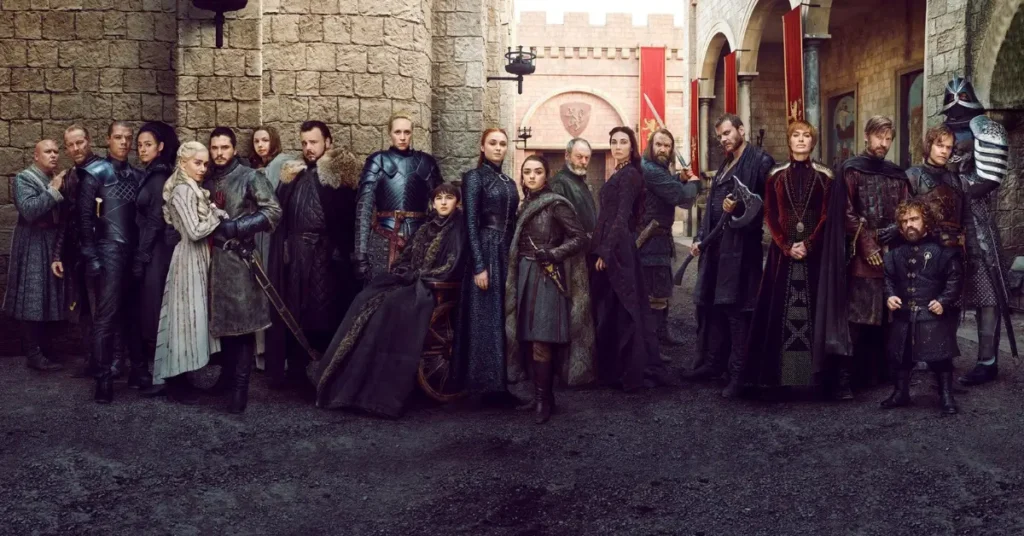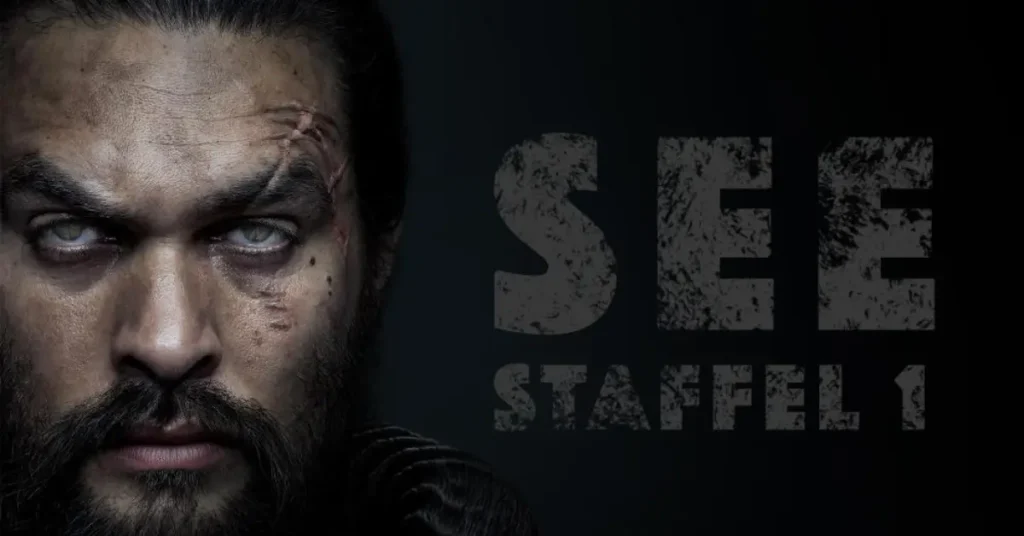Jason Momoa: Hollywood’s Unconventional Leading Man
Introduction
Joseph Jason Namakaeha Momoa, “Jason Momoa” stands as one of contemporary Hollywood’s most distinctive leading men, blending raw physicality with surprising emotional depth and cultural authenticity. Rising from television roles to blockbuster stardom, Momoa has redefined what it means to be an action hero in modern cinema. His journey from modeling discovery to cultural icon reflects his unique appeal a charismatic performer who brings both commanding presence and genuine sensitivity to his roles. With his towering physique, trademark long hair, and distinctive facial scar (the result of a bar fight that required 140 stitches), Momoa has carved out a niche as an actor who defies conventional Hollywood stereotypes while achieving mainstream success.
Thank you for reading this post, don't forget to subscribe!Early Life & Career Beginnings
Born on August 1, 1979, in Honolulu, Hawaii, Jason Momoa embodies his multicultural heritage with pride. His father, Joseph Momoa, is a painter of Native Hawaiian ancestry, while his mother, Coni Lemke, a photographer, raised him primarily in Norwalk, Iowa. This dual influence of island culture and midwestern upbringing shaped Momoa’s worldview and would later inform his approach to roles celebrating indigenous heritage.
Momoa’s entry into entertainment came through an unexpected channel when international fashion designer Takeo Kobayashi discovered him, launching a modeling career that provided his first taste of the spotlight. This early modeling success, while far from his later rugged screen persona, gave him valuable experience in front of cameras and paved the way for his acting career.
His television debut came with Baywatch Hawaii (1999-2001), where he played Jason Ioane for two seasons. Though the role primarily showcased his physical attributes rather than acting depth, it provided crucial screen experience and industry connections. Subsequent television work in North Shore (2004-2005) and a more substantial role in Stargate Atlantis (2005-2009) as Ronon Dex allowed him to develop his craft while gradually building a fan base.
Filmography & Career Highlights
While Momoa built a respectable career through these early roles, his true breakthrough came with HBO’s groundbreaking series Game of Thrones (2011-2012). As Khal Drogo, the fierce Dothraki warlord who evolves from feared warrior to devoted husband, Momoa created an indelible impression despite appearing in just ten episodes. His performance combining physical intimidation with unexpected emotional nuance announced him as a performer capable of substantial dramatic work beyond action sequences.
The same year, Momoa stepped into iconic territory by taking the title role in the reboot of Conan the Barbarian (2011). Though the film received mixed reviews, his physical commitment to the role demonstrated his dedication to action-oriented performances. This period marked his transition from television actor to film presence, though his most defining role was still to come.
After several years of smaller projects, Momoa achieved superstar status when cast as Aquaman in the DC Extended Universe. First appearing briefly in Batman v Superman: Dawn of Justice (2016), then more substantially in Justice League (2017), Momoa reinvented a character often dismissed as one of comicdom’s less impressive heroes. His full showcase came with Aquaman (2018), a billion-dollar global hit that established him as a leading man capable of carrying major franchises.
Between superhero outings, Momoa demonstrated his range through projects like the Apple TV+ series See (2019-2022), where he played Baba Voss, a blind warrior in a post-apocalyptic world. The role showcased his commitment to physical authenticity, as he trained extensively with movement coaches and studied echolocation techniques to portray blindness convincingly.
His casting as Duncan Idaho in Denis Villeneuve’s adaptation of Dune (2021) further elevated his status, integrating him into one of cinema’s most prestigious science fiction properties. Though not the central character, his charismatic performance left audiences wanting more a wish granted with his confirmed return in the upcoming third film adapting Dune Messiah.
Recent years have seen Momoa expanding his repertoire further, joining the Fast & Furious franchise as the villainous Dante in Fast X (2023) before returning to his signature role in Aquaman and the Lost Kingdom (2023). His casting in A Minecraft Movie (2025), which achieved record-breaking opening weekend numbers, demonstrates his continued commercial appeal.
Acting Style & Techniques
Jason Momoa’s approach to acting balances instinctive charisma with increasingly sophisticated preparation techniques. Rather than relying solely on his imposing physical presence, Momoa has developed a reputation for immersive preparation methods that bring authenticity to his performances.
For See, his dedication to portraying blindness authentically led him to work with consultants from the blind community and develop specific movement patterns and sensory awareness techniques. This level of commitment represents his evolution from a performer initially cast for physical attributes to an actor serious about crafting genuine characters.
His recent adoption of method techniques for his role as Lobo in Supergirl: Woman of Tomorrow (2026) including asking to be addressed by his character’s name on set signals his continued development as an actor willing to explore different approaches to performance. While he may not receive critical acclaim afforded to more traditionally trained actors, his commitment to authenticity has earned increasing respect from directors and co-stars.

Perhaps most distinctive about Momoa’s performances is his ability to balance intimidating physical presence with an underlying gentleness and humanity. This duality makes his characters more complex than typical action heroes and has become a hallmark of his most successful roles.
Challenges & Controversies
Despite his current success, Momoa’s path to stardom featured significant challenges. After the end of Stargate Atlantis in 2009, he struggled financially, later revealing in interviews that he was “completely in debt” during the period between that series and his Game of Thrones breakthrough. These lean years taught him resilience and appreciation for later opportunities.
The typecasting challenges common to physically imposing actors have also affected his career. His early roles often emphasized his physique over acting ability, a pattern he has worked deliberately to change through more complex character choices. The journey from beefcake television actor to respected performer required strategic role selection and persistent demonstration of his broader capabilities.
In his personal life, Momoa’s separation from longtime partner Lisa Bonet in 2022 after nearly five years of marriage (and a relationship dating back to 2005) generated significant media attention. However, unlike many Hollywood breakups, the couple has maintained an amicable relationship focused on co-parenting their children, reflecting Momoa’s often-stated commitment to family values.
Awards & Recognitions
While Momoa has yet to receive major acting awards from institutions like the Academy or Emmy organizations, his work has earned recognition in other forums. His 2019 Jupiter Award for Best International Actor acknowledged his impact in Aquaman, while the 2020 CinEuphoria Merit – Honorary Award recognized his broader contributions to cinema.
More significant than formal awards has been the critical reassessment of his abilities. Initially dismissed by some critics as simply a physically imposing presence with limited range, reviews of his more recent work have increasingly acknowledged his charisma, screen presence, and ability to bring emotional authenticity to larger-than-life characters. This evolution in critical perception represents a victory over early career typecasting.
Cultural & Industry Impact
Momoa’s most significant impact extends beyond individual performances to cultural representation. As an actor of Native Hawaiian ancestry who proudly celebrates his Polynesian heritage, he has become an important figure in the movement for more authentic indigenous representation in mainstream media. His success challenges Hollywood’s historically limited opportunities for actors of Pacific Islander descent.
His advocacy extends beyond mere representation to active cultural celebration. Momoa has incorporated Hawaiian traditions into public appearances, performed ceremonial haka dances at premieres, and spoken about the importance of cultural heritage in numerous interviews. This vocal pride has made him a role model for indigenous youth worldwide.
Within the industry, his production work on projects like See has demonstrated his commitment to inclusive storytelling. The series brought unprecedented attention to blind and visually impaired communities through both its storyline and Momoa’s insistence on authentic casting and consultation with blind individuals during production.
Personal Life & Philanthropy
Beyond his screen career, Momoa maintains an active personal life centered on outdoor pursuits and environmental activism. An avid rock climber, surfer, and martial arts practitioner, he brings the physical capabilities displayed in his roles into his daily life. These activities connect to his broader environmental consciousness and advocacy.
Ocean conservation stands at the center of his philanthropic work, a natural extension of both his Hawaiian heritage and his portrayal of Aquaman. He collaborates with organizations including Ocean Unite and Sustainable Coastlines Hawaii, using his platform to raise awareness about marine pollution, particularly plastic waste. In 2019, he addressed the United Nations on behalf of small island nations threatened by climate change, highlighting the real-world extension of his screen heroism.
His commitment to environmental sustainability extends to his business ventures as well. In 2021, he launched Mananalu Water, an aluminum-bottled water company aimed at reducing single-use plastic consumption. This entrepreneurial activism reflects his holistic approach to environmental issues as requiring both personal and systemic changes.
Future Projects & What’s Next
At 45, Momoa finds himself at a career peak with an exciting slate of upcoming projects that suggest continued evolution as a performer. His casting as the intergalactic bounty hunter Lobo in Supergirl: Woman of Tomorrow (2026) promises a character that combines his physical presence with the dark humor and anti-hero complexities the comic book character is known for.
Currently in production is The Defender, a Netflix series based on a comic book character that will allow him to further explore the superhero genre from a different angle. Meanwhile, In the Hand of Dante, a dramatic film co-starring Al Pacino, suggests Momoa’s continued interest in challenging himself with more character-driven material alongside established dramatic actors.
His confirmed return as Duncan Idaho in Dune 3 indicates filmmaker Denis Villeneuve’s appreciation for his contributions to the franchise. While his role in the first film was relatively limited, the character’s expanded importance in the source material of Dune Messiah suggests a more substantial role that could showcase different aspects of his performance capabilities.
Conclusion
Jason Momoa’s journey from Baywatch beefcake to global action star and cultural icon illustrates the power of authenticity in an industry often criticized for superficiality. By embracing rather than disguising his mixed heritage, physical capabilities, and unorthodox sensibilities, he has created a distinctive screen persona unlike any other contemporary leading man.
His evolution as an actor continues to surprise critics who initially dismissed him, while his environmental activism and cultural advocacy have elevated him beyond mere celebrity to a figure of genuine influence. As traditional Hollywood leading man archetypes give way to more diverse representations of heroism, Momoa stands at the forefront of a new generation of action stars who bring personal authenticity and cultural specificity to their roles.
The question remains: how will Momoa continue to evolve as his career progresses? Will he leverage his current status to pursue more challenging dramatic roles, or continue refining the action hero archetype he has so successfully redefined? Either way, his journey from Hawaii to Hollywood represents one of contemporary cinema’s most compelling success stories.
What is your favorite Jason Momoa performance? His fierce Khal Drogo, his reimagined Aquaman, or perhaps his blind warrior Baba Voss in See?



